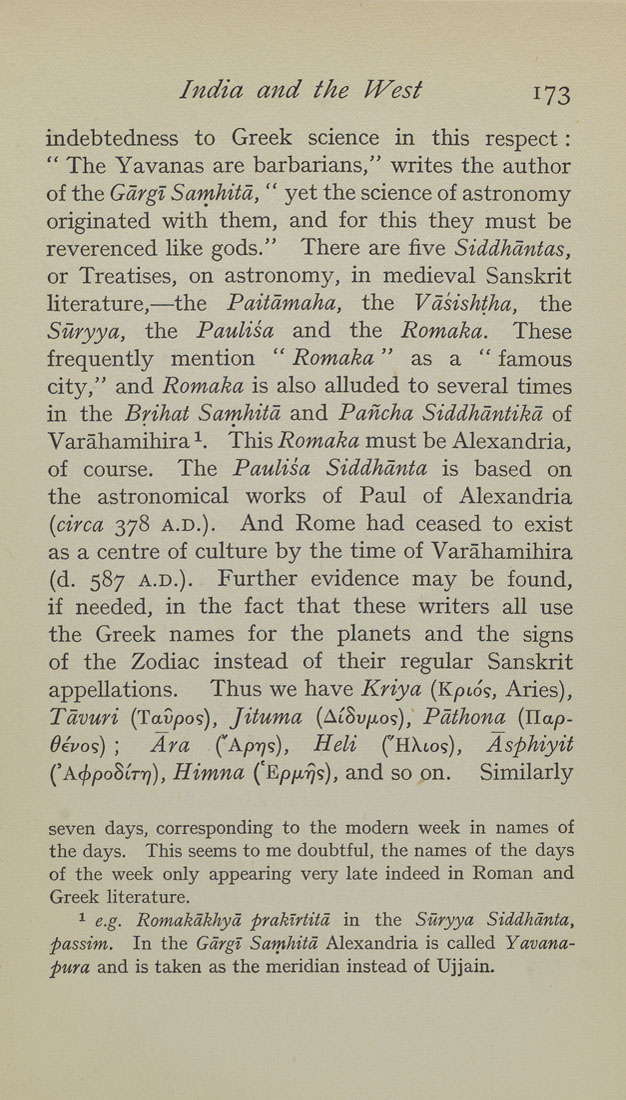India and the West 173
indebtedness to Greek science in this respect:
" The Yavanas are barbarians," writes the author
of the Gdrgi Samhitd, " yet the science of astronomy
originated with them, and for this they must be
reverenced like gods." There are five Siddhdntas,
or Treatises, on astronomy, in medieval Sanskrit
literature,—the Paitdmaha, the Vdsishtha, the
SUryya, the Paulisa and the Romaka. These
frequently mention " Romaka" as a '' famous
city," and Romaka is also alluded to several times
in the Brihat Sarnhitd and Pancha Siddhdntikd of
Varahamihira 1. This Romaka must be Alexandria,
of course. The Paulisa Siddhdnta is based on
the astronomical works of Paul of Alexandria
{circa 378 a.d.). And Rome had ceased to exist
as a centre of culture by the time of Varahamihira
(d. 587 A.D.). Further evidence may be found,
if needed, in the fact that these writers all use
the Greek names for the planets and the signs
of the Zodiac instead of their regular Sanskrit
appellations. Thus we have Kriya (Kpi6<5, Aries),
Tdvuri (Tavpos), Jituma (AtSv/xo?), Pdthona ijlap-
6ivo<i) ; Ara (Ap7]<;), Heli fHXtos), Asphiyit
(A(f)poSLTr]), Himna (EpiJL'r]^), and so on. Similarly
seven days, corresponding to the modern week in names of
the days. This seems to me doubtful, the names of the days
of the week only appearing very late indeed in Roman and
Greek literature.
1 e.g. Romakdkhyd praktrtitd in the SUryya Siddhdnta,
passim. In the Gdrgi Sarnhitd Alexandria is called Yavana-
pura and is taken as the meridian instead of Ujjain.
|








